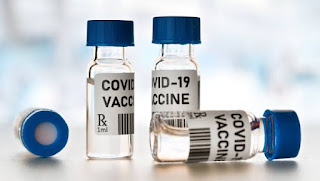Natural Remedies For Scars On Legs
Scars on the legs are a common occurring. They are normally resulting of wounds healing process, and are not typically a cause for concern. However, some people might wish to treat scars for cosmetic reasons.
Some scars might fade over time, while others can be permanent. Home care can help reduce their appearance.
People who have concerns about scars on their legs can see a doctor. In rare cases, they could resemble serious conditions.
In this piece, we try to look at common home remedies able to remove leg scars.
Home remedies could reduce the appearance of scars on the legs. These treatments are with minimal risks and can help reduce new or minor scars.
However, older or extensive scars might need cosmetic treatment from a dermatologist.
Prompt treatment
Proper wound care can reduce the appearance of minor scars, including skinned knees or scratches. The American Academy of Dermatology recommend:
- keeping the wound clean by washing the spot everyday with mild soap and water
- applying petroleum jelly to maintain the wound moist, and stop the formation of scabs
- protecting the skin with a bandage or using silicone gel sheets for larger wounds
- changing the dressing on daily basis
- meeting a doctor for stitches if needed
- using sunscreen daily when the wound had healed
Massaging with oils
Once the scar heals over, massaging could be helpful. Gentle massage techniques on the area surrounding the scar could reduce collagen build-up in the tissues, which may minimize the scar.
While research that supports scar massage is limited, the general belief suggests that it may work for some people.
According to the British Skin Foundation, the general advice is to massage the skin for 5 minutes, 3–4 times everyday. People could practice massage at home, or see a professional massage therapist who specializes in scar issues.
Natural oils may make massage easier and could loose tightness in the scar. Examples of common oils for scar treatment include:
- coconut oil
- sweet almond oil
- Vitamin E oil
The research on the use of oils to reduce scars is limited, although a 2010 animal study indicates coconut oil could encourage skin tissue to heal.
Exfoliation
Once the wound heals, regular exfoliation might remove dead skin cells, which could help the scar recover faster. People might exfoliate the area surrounding the scar with an exfoliating cleanser, or use a clean cotton bug with mild soap and water.
It is helpful to apply moisturizer or natural oil after a person has exfoliated. They should not over-exfoliate the skin, as this could lead to redness and irritation.
Over-the-counter (OTC) exfoliating products might also minimize the appearance of scars. One study shows products that contain chemical exfoliators, like glycolic acid, could reduce acne scars.
Essential oils
Some essential oils could reduce infection and inflammation, and help the wound to heal. These oils may not be able to heal older or existing scars, even if some people might find them helpful.
Popular essential oils for wounds are:
- chamomile
- frankincense
- geranium
- helichrysum
- lavender
- tee tree
Aloe vera gel
Aloe vera gel has a long history of use in skin disorders. A review of 23 trials suggests that it may improve skin moisture and integrity, prevent ulcers, and increase wound healing.
There is limited evidence to support the use of aloe vera to improve the appearance of scars. However, it is likely safe for most people to use, and could help hydrate the skin to reduce scar tightness.
OTC cream or gel
OTC medicated creams and gels are available to improve wound healing and minimize scar appearance. An antihistamine cream, for example, might help with scar sensitivity.
Silicone sheeting or gel could also improve scar appearance, according to some research, and reduce itching and discomfort. People should apply silicone sheets or gel to the scar for 12 hours daily, for a minimum of 3 months, to get results.
People are encouraged to discuss OTC scar treatment options with their doctor or pharmacist.
Sunscreen
Daily use of sunscreen wouldn't help to get rid of leg scars, but it could allow them fade faster and reduce skin discoloration. Sunscreen is especially effective if people use scar-fading products, including glycolic acid.
The AAD recommend daily use of a broad-spectrum sunscreen with an SPF of 30 or higher. People are advised to reapply this several times throughout the day.
- and minimize scar visibility, if the scar is on a muscle or group of muscles.
- Corticosteroid shots: These injections may help reduce scar size and flatten out raised scars. Alternatively, skin tape that contains steroids might flatten scars.

















Comments
Post a Comment